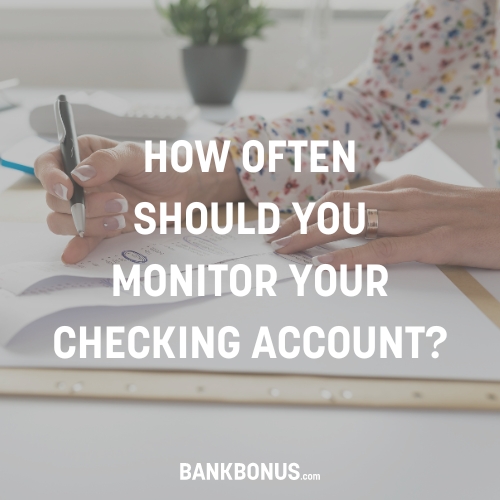Understanding the difference between a charge card vs. credit card helps you manage your finances wisely. Each card works uniquely, and both have benefits and drawbacks depending on your finances.
A credit card allows you to borrow money from a bank up to a certain limit. You can pay back the amount you’ve spent in full or in installments. If you pay in installments, the credit card issuer charges interest on the remaining balance.
On the other hand, you’ll need to pay off your charge card’s balance in full at the end of each billing cycle. It doesn’t have a pre-set spending limit but doesn’t allow unpaid balances to roll over into the next month.
The best card option will depend on your credit score, financial goals, and other aspects of your personal finances. In this article, we’ll share how each card works and what you can expect. Let’s dive in so you can make an informed decision that fits your needs.
Charge Card vs. Credit Card: How They Work
How Does a Charge Card Work?
A charge card is a type of payment card that allows individuals to make purchases, though requires them to pay the balance in full at the end of each billing cycle.
Unlike a credit card, charge cards typically require the full monthly payment of the outstanding balance. Charge cards can be a great option if you don’t want to pay interest or carry a monthly balance.
Here are some key characteristics of charge cards:
- No preset spending limit: One of the key features of a charge card is that it usually doesn’t have a predetermined spending limit. Instead, the card issuer determines the spending limit based on the individual’s payment history, income, and creditworthiness.
- Strict payment terms: With a charge card, cardholders must pay off their balance in full by the due date specified on the monthly statement. Charge card users can’t carry a balance from one month to the next like they can with credit cards.
- No interest charges: Since charge card users are required to pay their balance in full each month, there are typically no interest charges associated with these cards. Removing this expectation can be advantageous for individuals who want to avoid accruing interest and prefer to have a clear understanding of their monthly expenses.
- Annual fees: Charge cards often come with high annual fees, varying depending on the card issuer and the specific card. These fees are generally higher than credit cards. They cover the benefits and services the charge card issuer
How Does a Credit Card Work?
A credit card is a financial tool that allows individuals to purchase on credit. It is a plastic card issued by a financial institution, such as a bank or credit union that enables cardholders to borrow money up to a certain limit.
Unlike cash or debit cards, which require immediate payment, a credit card allows users to defer payment until a later date.
Credit cards come with several features and characteristics that make them a popular choice for many consumers:
- Convenience: One of the key advantages of using a credit card is the convenience it offers. With a credit card, you can make purchases online, over the phone, or in person without carrying large amounts of cash.
- Credit Limit: Each credit card comes with a predetermined credit limit, representing the maximum amount of money you can borrow. The credit card issuer sets this limit based on your credit history, income, and repayment
- Interest Charges: When you carry a credit card balance from month to month, the credit card issuer will charge you interest on the outstanding balance, even if you make a minimum monthly payment. The interest rate, known as the Annual Percentage Rate (APR), varies from card to card. This rate can significantly impact your overall cost if you carry a balance.
- Revolving Credit: Credit cards provide users with a revolving credit line, which means that as you repay the borrowed amount, the credit becomes available again. This flexibility allows you to reuse the credit if you make timely payments.
- Rewards and Perks: Many credit cards let account holders earn points, cash-back rewards, or travel miles when swiped. These rewards can add value to your credit card
Charge Card vs. Credit Card: Payment Terms & Requirements
Charge Card Payment Terms and Requirements
Charge cards require you to agree to a few payment terms:
- Full payment requirement: As mentioned earlier, charge card users must pay off their monthly balance. Failure to do so may result in penalties, such as late fees and suspending charging privileges.
- Creditworthiness and income verification: When applying for a charge card, card issuers typically conduct a thorough evaluation of an individual’s credit history, income, and financial stability. This assessment helps determine whether the applicant meets the card issuer’s criteria for creditworthiness.
- Financial responsibility: Charge card issuers often prefer applicants with a history of responsible financial behavior, including a good FICO/credit score, a steady income, and a demonstrated ability to manage credit responsibly.
Credit Card Payment Terms and Requirements
It is essential to understand the payment terms and requirements associated with credit cards if you want to manage your personal finances effectively:
- Minimum Payment: Each month, credit card issuers require you to make a minimum payment on your outstanding balance. The minimum payment is typically a small percentage of the total balance, and failing to pay it can result in late fees or penalties.
- Grace Period: Credit cards often come with a grace period, a specified time during which you can avoid paying interest on new purchases. If you pay your full outstanding balance by the due date, you can take advantage of the interest-free period.
- Late Payment Consequences: Missed payments on your credit card can have various consequences, including late payment fees, increased interest rates, and damage to your credit score. It’s important to make timely payments to avoid these negative impacts.
- Creditworthiness: To qualify for a credit card, financial institutions assess your creditworthiness, which includes factors such as your credit score, income, and employment history. A good credit score increases your chances of getting approved and may result in better interest rates and higher credit limits.
Charge Card vs. Credit Card: Key Differences
In this section, we will explore three key areas of differentiation between charge cards and credit cards: available credit, payment options, and interest charges.
1. Credit Limit
One of the key differences between charge cards and credit cards lies in the credit limit. A credit limit refers to the maximum amount of money that a cardholder can borrow or spend using their card.
A credit card typically has a preset spending limit set by the issuer. The cardholder can make purchases up to that limit, and if they exceed it, they may face penalties or declined transactions.
On the other hand, charge cards don’t have a fixed credit limit. Instead, the cardholder must pay the full balance each month. A charge card’s spending power can be greater than a credit card if the cardholder can afford to repay the entire amount within the specified timeframe.
As a result, charge cards are usually better for individuals who have higher incomes and can handle the responsibility of paying off their balance in full each month.
2. Payment Options
Another notable difference between charge and credit cards is the available payment options. With a credit card, the cardholder has the flexibility to make minimum payments, which allows them to carry a balance from month to month.
If they can’t afford to pay the full amount owed, they can make a minimum payment and carry the remaining balance, incurring interest charges on the unpaid balance.
In contrast, charge cards require the cardholder to pay the full balance by the due date without the option to carry a balance. Charge card users must be diligent in managing their finances to ensure they make timely payments.
However, charge cards offer the advantage of not charging interest on unpaid balances precisely because they require full monthly payments.
3. Interest Charges
Speaking of interest charges, this is yet another area where charge cards and credit cards differ. Credit cards typically come with an Annual Percentage Rate (APR) applied to any unpaid balances carried forward from previous billing cycles.
If a credit card user doesn’t pay their full balance by the due date, they will incur interest charges on the remaining amount, which can accumulate over time.
On the other hand, charge cards don’t charge interest on unpaid balances because the cardholder expects to pay the full balance each month. Therefore, charge card users can avoid interest charges if they promptly fulfill their payment obligations.
In summary, charge cards and credit cards have distinct characteristics that set them apart. Charge cards do not have a fixed credit limit, require full monthly payment, and don’t charge interest on unpaid balances.
Credit cards, on the other hand, come with a predetermined credit limit, offer the option to carry a balance with interest charges, and provide more flexibility in payment options.
Charge Card vs. Credit Card: Choosing
Choosing between a charge card and a credit card depends on your financial habits and needs.
If you prefer to pay off your balance in full each month and value flexibility, a charge card may be a suitable option.
On the other hand, if you require the option to carry a balance and want wider acceptance, a credit card may be more suitable.
Consider your spending habits, financial goals, and the perks different card providers offer to decide which option is right for you.
Frequently Asked Questions
Do charge cards build credit?
Yes, charge cards can be as effective at building credit as credit cards and other debt tools demonstrating your spending habits and payment history.
Do charge cards report to credit bureaus?
Yes, charge cards report to credit bureaus when you pay off your monthly balance. Not paying off the monthly balance can result in restricted card privileges and a hit on your credit report.
Do charge cards affect my utilization rate?
No, charge cards don’t affect your utilization rate under most scoring models because they don’t allow you to carry a monthly balance or have a preset spending limit. Charge cards can be a great option if you are working toward financial goals, such as buying a house, where your debt-to-income ratio is a factor.
Can you get a charge card with bad credit?
No, you can’t get a charge card with bad credit. Charge cards are generally for people with good to excellent credit because they have a demonstrated payment history and lower credit utilization, which shows they prioritize paying off their monthly balances responsibly.
If you need to rebuild your credit or are struggling to qualify for the type of card you want, consider getting a secured credit card instead. A secured credit card requires you to put down a deposit first, which becomes your credit limit.
After months of on-time payments, you may be eligible for an increased credit limit or perks associated with traditional credit cards.
Bottom Line
You might be wondering, what is better, a charge card or credit card? While both cards offer convenience and purchasing power, they have distinct characteristics that set them apart.
By understanding the differences between these two types of cards, you can choose the one that aligns with your financial goals and spending habits.
Remember to read the terms and conditions of each card carefully, compare fees and interest rates, and consider your personal financial situation before making a decision.
Whether you opt for a charge card or a credit card, responsible use and timely payments will help maintain a healthy financial profile and maximize these cards’ benefits.





Comments are closed.
Comments are closed here.